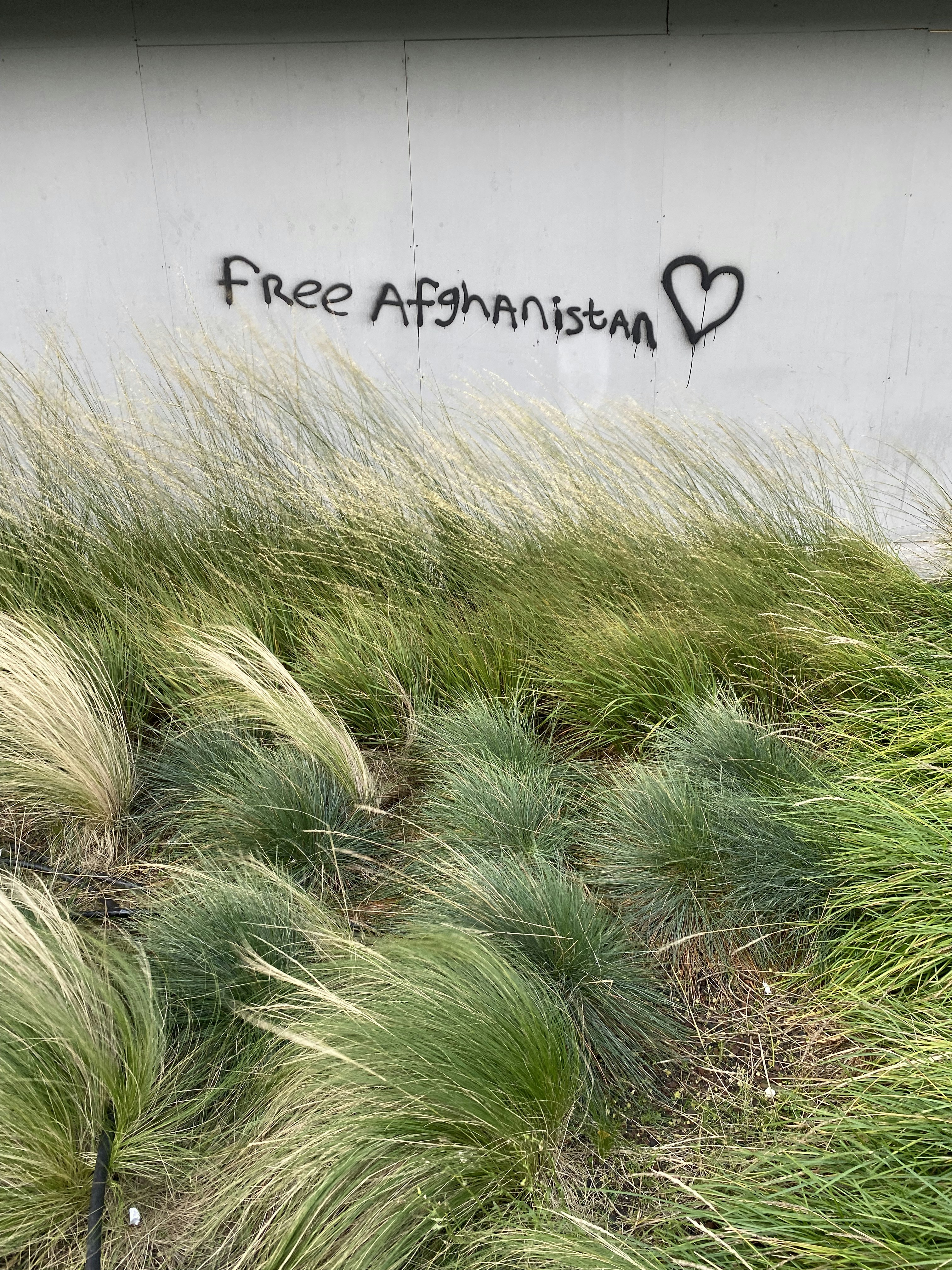Introduction: A Brief Overview of Recent Tensions
The relationship between Afghanistan and Pakistan has been fraught with tension, particularly in light of recent accusations made by Afghanistan’s Taliban government regarding violations of its sovereignty. The backdrop to this diplomatic conflict has been shaped by a series of violent incidents, notably loud blasts in Kabul and a devastating bombing of a civilian market in Patika. These occurrences have escalated existing strains between the two nations, sparking concerns over security and stability in the region.
Since the Taliban’s return to power in Afghanistan in 2021, interactions with Pakistan have become increasingly strained. Afghan officials have accused Pakistan of carrying out cross-border attacks that infringe on Afghanistan’s territorial integrity. The recent escalation in such accusations has garnered international attention, primarily due to the ramifications it could have on regional geopolitics. Observers note that these tensions may further complicate the already volatile security situation in Afghanistan, where militant activities remain significant.
The bombings, particularly the attack on the civilian market in Patika, serve as a poignant reminder of the precarious balance of power and security in the region. In the wake of these events, Afghanistan’s Taliban has articulated its stance clearly, labeling the incidents as direct provocations by Pakistan. Moreover, these attacks have led to widespread fear among the Afghan populace, heightening calls for the Taliban government to respond decisively in defense of the nation’s sovereignty.
The unfolding narrative surrounding the pakistan attack on afghanistan raises several questions regarding the future of bilateral relations. As accusations continue to fly, the international community watches closely, considering implications for regional security and the humanitarian situation for civilians caught in this escalating conflict. Understanding the dynamics at play is essential in unraveling the complexities of these recent tensions.
Background: The Historical Context of Afghanistan-Pakistan Relations
The relationship between Afghanistan and Pakistan has been characterized by a complex interplay of historical grievances, geopolitical influences, and shifting alliances. Since the partition of British India in 1947, the two nations have experienced a tumultuous relationship, largely rooted in territorial disputes, particularly concerning the Durand Line, which Pakistan considers its border but is viewed by many Afghans as an illegitimate demarcation. The unresolved status of this border has served as a flashpoint for tensions and has fueled a series of conflicts and accusations over the decades.
In the Cold War era, both countries found themselves influenced by superpower dynamics, leading to further complications. Afghanistan’s alignment with the Soviet Union after the 1979 invasion and Pakistan’s subsequent role as a key ally of the U.S. placed them at opposing ends of a global rivalry. This geopolitical context has seen Pakistan support Afghan factions that fought against the Soviet invasion, particularly those aligned with the mujahideen and later, the Taliban. Consequently, the Pakistan attack on Afghanistan narrative has evolved through numerous phases of military intervention and political manipulation, resulting in a long-standing cycle of mistrust.
Numerous incidents of cross-border skirmishes and militancy have marked the relationship, with each country accusing the other of harboring insurgents responsible for internal instability. In recent years, allegations of cross-border attacks have surfaced repeatedly, with Afghanistan accusing Pakistan of enabling Taliban militants to launch operations within its territory. This backdrop of sustained conflict and cooperation ultimately shapes the current accusations of violations of sovereignty, as each country grapples with its own national security concerns while navigating a landscape defined by external influences and historical rivalries.
Details of the Allegations: Specific Incidents Reported
Recent tensions between Afghanistan and Pakistan have been exacerbated by a series of alleged attacks attributed to Pakistani forces. Prominent among the reported incidents are two significant explosions that occurred in Kabul, which have raised alarming concerns among Afghan authorities. According to officials, these loud blasts were not only alarming but also caused considerable destruction and fear among the local populace.
The Taliban defense ministry condemned these events, asserting that the explosions, which some sources claim were linked to aggressive actions from across the border, constitute a violation of Afghan sovereignty. Eyewitness accounts indicate that the blasts resulted in extensive damage to nearby structures, injuring civilians and causing panic among residents. These incidents have painted a grim picture of the ongoing conflicts and have intensified the public’s apprehension about security in urban areas.
In addition to the Kabul blasts, another distressing incident was reported involving a bombing of a civilian market in the Patika province. This attack has reportedly resulted in numerous casualties, further fueling accusations directed at Pakistan regarding its involvement in destabilizing Afghan regions. Local witnesses described a chaotic scene, with people scrambling for safety as shops were demolished and lives disrupted. The humanitarian impact of such attacks has been profound, prompting local officials to call for increased measures to protect civilians and de-escalate tensions.
The escalating accusations of a Pakistan attack on Afghanistan not only suggest a pattern of cross-border conflict but also highlight the urgent need for dialogue between the two nations. The intricate geopolitical relations in this region necessitate careful examination and response from both Afghan and international stakeholders to prevent further violence and humanitarian crises.
Reactions from Pakistan: Official Statements and Responses
In response to the escalating tensions following Afghanistan’s accusations, Pakistan’s government and military officials have issued several statements addressing the concerns raised. The central theme of these responses is a staunch denial of the claims regarding any violations of Afghanistan’s sovereignty. During a recent press conference, the Chief of Army Staff of Pakistan emphasized that the allegations of incursions or attacks are unfounded and part of a broader narrative intended to divert attention from internal challenges faced by Afghanistan.
Pakistan’s military leadership reiterated that the country strictly adheres to its territorial integrity, underscoring a commitment to peace and stability in the region. Pakistan argues that the Afghan government has inadequately addressed the presence of terrorist elements operating from its territory, which, they assert, poses a direct threat to Pakistan’s security. This perspective is underscored by Pakistan’s insistence that certain militant groups are leveraging Afghanistan as a base for conducting operations against Pakistan, thereby undermining the nation’s efforts to combat terrorism.
Officials in Islamabad have called for a collaborative approach to addressing the threats posed by these groups, urging Afghanistan to take actionable steps against the factions responsible for violent acts. The Pakistani administration believes that enhanced cooperation between the two nations is essential for effective counter-terrorism efforts. This situation raises critical questions about bilateral relations, as Pakistan emphasizes that it is not engaging in aggression but rather defending its border against the repercussions of cross-border insurgency fueled by the Afghan conflict.
Through these measures and statements, Pakistan seeks to portray itself as a responsible actor in the region, navigating complex security dynamics while asserting that the accusations leveled against it, such as the recent allegations of a Pakistan attack on Afghanistan, are politically motivated distractions from deeper-rooted issues within Afghanistan.
Impact on Civilians: Voices from the Ground
The ongoing tensions between Afghanistan and Pakistan have manifested in numerous violent incidents, particularly through the recent bombings that have left local civilians in a state of fear and uncertainty. Many residents of affected areas expressed deep concerns about their safety and the stability of their day-to-day lives. In interviews conducted with survivors of these bombing incidents, the recurring themes of loss and anxiety emerged clearly.
A young woman from Jalalabad recounted her experience during one such attack. “I was in the market when I heard the explosion. People were screaming and running; it was chaos. I lost two friends that day, and now I’m too scared to go out.” Such firsthand accounts reflect not only personal loss but also underscore the psychological impact that the pakistan attack on afghanistan has on civilians. The sense of insecurity has become a grim part of everyday life for many families. They now find themselves grappling with the constant threat of violence that accompanies these geopolitical skirmishes.
Local health clinics report an increase in patients seeking help for anxiety and trauma-related symptoms. A medical worker noted, “Every day, we see people coming in who are not just physically injured but also emotionally shattered. These bombings have taken a toll on the community’s psyche.” The toll is not only physical; the social fabric of communities is fraying, with many individuals hesitant to gather or participate in community events that could expose them to further danger.
This cycle of violence and fear continues to disrupt the lives of ordinary Afghan civilians, who long for peace and stability amid escalating conflict, further complicating an already difficult path towards recovery and self-sustainability. The plight of these individuals serves as a stark reminder of the human cost associated with the pakistan attack on afghanistan, highlighting the urgent need for diplomatic solutions and humanitarian support to restore security and dignity to their lives.
The Role of the Taliban: Security and Governance Challenges
The Taliban’s governance in Afghanistan is marked by significant security challenges, particularly regarding the alleged presence of the Pakistani Taliban operating within Afghan territory. This situation is not only a concern for Afghan authorities but also raises questions about the Taliban’s commitment to securing the nation’s borders and maintaining stability. Since the Taliban regained control in August 2021, there have been recurring assertions from the Afghan government about cross-border incursions and attacks that allegedly originate from Pakistan. The Pakistani Taliban, known as Tehrik-i-Taliban Pakistan (TTP), has reportedly utilized Afghan soil as a haven for launching operations against the Pakistani state.
The Taliban has consistently denied facilitating any form of cross-border terrorism, insisting that it does not support groups that threaten the security of neighboring countries. However, these denials have been challenged by rising tensions and incidents attributed to the Pakistani Taliban, complicating the governing authority’s legitimacy. The situation underscores the complexity of the Taliban’s rule, as they grapple with not only internal dissent and governance issues but also external pressures regarding their sovereignty and the management of border security.
International Reactions: Global Perspectives on the Conflict
The recent escalation of tensions between Afghanistan and Pakistan has drawn significant attention and concern from the international community. Foreign governments, think tanks, and global organizations have been closely monitoring the situation, particularly in light of the implications for regional stability and international security. The attack on Afghanistan attributed to Pakistan has been a focal point in discussions surrounding this complex conflict.
Numerous countries have expressed their apprehensions regarding potential escalations in hostilities that could disrupt the fragile stability both nations have struggled to maintain. Major powers such as the United States, Russia, and China have called for restraint on both sides, urging dialogue as a means to address the highlighted grievances. Diplomatic talks are being advocated as a pathway to de-escalation, stressing the importance of respecting national sovereignty in light of Afghanistan’s accusations of Pakistan’s infringement through targeted military actions.
Africa, Europe, and the South Asia region have raised concerns about the spillover effects of this conflict, including the potential increase in refugee movements and terrorism. The United Nations has reiterated its position advocating for peaceful resolution mechanisms and the necessity for the involved parties to engage in constructive dialogue. The organization has also emphasized the importance of respecting international norms that govern state interactions, particularly in terms of sovereignty and territorial integrity.
Furthermore, think tanks and policy analysts have highlighted that the recent Pakistan attack on Afghanistan could exacerbate existing tensions in an already volatile region. The possibility of miscalculations leading to an armed conflict poses significant risks not just for the immediate nations involved but for their neighbors, further intertwining regional politics with international security dynamics.
In conclusion, as the situation evolves, the international community remains vigilant and hopeful for constructive engagement that prioritizes diplomatic resolutions, fostering peace and stability in South Asia.
Potential Consequences: Future Implications for Afghanistan-Pakistan Relations
The recent tensions marked by the allegations of a Pakistan attack on Afghanistan accentuate the fraught nature of the bilateral relations between these two neighboring countries. As claims of sovereignty violations emerge, both nations are posed with critical decisions that could influence future interactions. The ramifications of such conflicts can oscillate between severe escalations and potential pathways towards diplomatic reconciliation.
Firstly, if the situation continues on its current trajectory, it could lead to an escalation of military confrontations. This scenario raises alarm bells for regional stability, as heightened hostilities might embroil not only Afghanistan and Pakistan but also surrounding nations. The conflict could see a rise in militant activities and cross-border insurgencies, complicating existing security dilemmas and undermining peace efforts in the region. Therefore, persistent tension resulting from the vehement backlash against what is termed a Pakistan attack on Afghanistan could hinder any progress towards long-term peace initiatives.
Conversely, there exists a significant opportunity for diplomatic engagement. Acknowledging the complex historical ties and interdependencies, both nations may strive for dialogue to mitigate tensions and promote mutual cooperation. Through diplomatic channels, Afghanistan and Pakistan can address their grievances and seek solutions that respect each other’s sovereignty while working collaboratively on shared challenges such as terrorism and economic development. Such efforts might foster a renewed commitment to regional partnership, potentially altering the narrative of hostility into one of cooperation.
Ultimately, the future of Afghanistan-Pakistan relations remains uncertain, influenced by various internal and external factors. The need for a balanced approach is paramount, where both nations recognize their intertwined fates and work towards reducing tensions. The outcome of this situation could very well set the tone for decades of interactions, highlighting the importance of proactive diplomacy in the face of strife.
Conclusion: Seeking Solutions and Path Forward
The recent escalation of tensions, stemming from Afghanistan’s accusations against Pakistan regarding violations of its sovereignty, underscores the importance of dialogue and cooperation between the two nations. The allegations of the Pakistan attack on Afghanistan reflect not only military concerns but also deeper issues of trust and mutual respect. Both countries face significant security challenges that can no longer be addressed in isolation. It is imperative that Afghanistan and Pakistan come together to re-establish communication channels aimed at fostering stability in the region.
Maintaining peace requires understanding the nuanced complexities underlying the situation. Each nation has legitimate security concerns that warrant acknowledgement and respect. For instance, Pakistan has expressed its apprehensions regarding militant groups that may use Afghan territory as a base for operations, while Afghanistan is keen on protecting its sovereignty and preventing foreign intrusions. To facilitate dialogue, both governments must prioritize diplomacy over militaristic posturing and explore potential areas for cooperation.
Furthermore, international stakeholders, including regional powers, should play a constructive role in promoting peace. Mediated discussions, supported by external parties, could help bridge gaps in communication and foster trust. Engaging in joint initiatives focused on counter-terrorism and border security may prove beneficial for both nations and help them address the regional threats they face. In light of the Pakistan attack on Afghanistan and ongoing violence, it is vital that both sides commit to a framework of collaboration, rather than confrontation.
In summary, addressing the mutual security concerns between Afghanistan and Pakistan is crucial for establishing long-lasting peace. It requires a united front that emphasizes dialogue, shared interests, and a commitment to regional stability. Only through such collaborative efforts can both countries hope to secure a safer future for their citizens.
About TodayResearcher
At TodayResearcher, we bring you stories that matter. Covering everything from breaking news and world events to lifestyle, entertainment, science, and culture, our editorial team is dedicated to delivering accurate, insightful, and engaging content. We aim to keep readers informed, inspired, and curious about the world around them.



